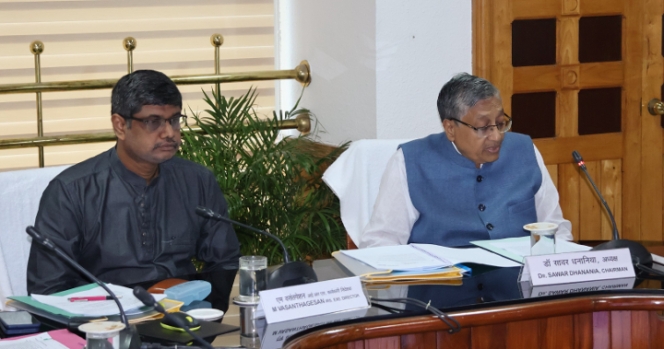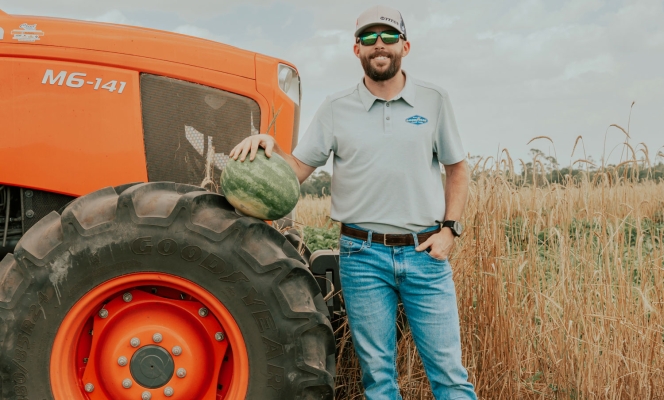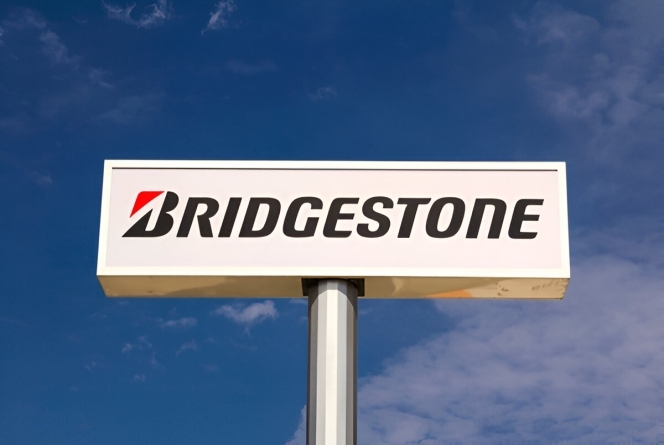Indian Natural Rubber Sector Sees Robust Growth Despite Challenges, Says Rubber Board Chairman
- By TT News
- September 21, 2023

Dr Sawar Dhanania, Chairman of the Rubber Board, expressed optimism about the growth in both production and consumption of natural rubber (NR) in the Indian plantation sector. At the 185th meeting in Kottayam, he acknowledged the challenges such as price volatility, climate change, market issues, and labour shortage. Dr Dhanania emphasized the need for grassroots-level solutions to ensure sustainability and profitability.
“The efforts of the Rubber Board and the timely interference in disease control, adoption of rubber holdings for harvesting, formation of Rubber Tapper Groups (RTGs), etc., have resulted in the augmentation of NR production in the country. But, many challenges, including volatilities in rubber prices, climate change, market issues, labour shortage, etc., continue in the rubber sector. We need to find suitable solutions at the grassroots level to make the plantation sector more sustainable and profitable. In the present scenario, Rubber Producers’ Societies (RPSs) need further improvement in their governance and activities to face the various challenges in the rubber plantation sector. RPSs should become self-sufficient in their activities. The concept of Farmer Producer Organizations (FPOs) in the RPS sector is a viable suggestion to experiment with in the coming days, Dr Dhanania said.
M Vasanthagesan IRS, Executive Director of the Rubber Board, provided an overview of the Indian NR sector. He reported an 8.3 percent growth in NR production, totalling 839,000 tonnes in 2022-23, with an average yield increase to 1,482 kg/ha. Domestic NR consumption reached a record high of 1,350,000 tonnes, reflecting a 9 percent increase from the previous year. The auto tyre sector saw a 4.8 percent growth, while the general rubber goods sector experienced a substantial 20.4 percent growth.
Auto-tyre manufacturing accounted for 70.3 percent of NR consumption in 2022-23. Projections for 2023-24 estimate NR production at 875,000 tonnes and consumption at 1400,000 tonnes. The Board commended the Union Government for increasing the import duty on compounded rubber to align with NR.
Additionally, the Committee recommended ensuring that the Rubber Production Incentive Scheme of the State Government reaches all small growers. The Rubber Board held meetings covering Staff Affairs, Strengthening of RPSs, and Research and development.
- Indian Car of the Year
- ICOTY 2026
- Indian Motorcycle of the Year
- IMOTY 2026
- Maruti Suzuki Victoris
- TVS Apache RTX 300
- Premium Car of the Year
- Green Car of the Year
- Volkswagen Golf GTI
- Mahindra XEV 9e
JK Tyre Celebrates Indian Automotive Excellence At ICOTY & IMOTY Awards 2026
- By TT News
- December 20, 2025
The Maruti Suzuki Victoris was crowned Indian Car of the Year (ICOTY) 2026 and the TVS Apache RTX 300 secured the Indian Motorcycle of the Year (IMOTY) 2026 title. These prestigious honours were presented by Dr Raghupati Singhania, Chairman and Managing Director of JK Tyre & Industries, alongside the awards' chairmen, Pablo Chaterji of ICOTY and Kartik Ware of IMOTY, during a prominent ceremony in New Delhi. The event, a key date in the industry calendar, gathered leading automotive figures to celebrate these achievements.
Now in their 21st and 19th iterations, respectively, the JK Tyre-sponsored ICOTY and IMOTY awards remain the most credible benchmarks for automotive excellence in India. The ceremony also recognised vehicles in specialised categories, reflecting evolving market trends. The Volkswagen Golf GTI received the Premium Car Award 2026, while the Mahindra XEV 9e was honoured with the Green Car Award 2026 for its contributions to electric mobility.
These outcomes are determined by a rigorous evaluation process conducted by a 27-member jury of senior automotive journalists, whose collective experience spans over three centuries. Modelling global award standards, the jury assesses every shortlisted vehicle across a comprehensive set of criteria. This includes design, safety, performance, technology, value and suitability for Indian driving conditions. This meticulous and transparent methodology sustains the awards' authority and ensures they consistently celebrate the vehicles that truly advance the nation’s automotive landscape.
Dr Raghupati Singhania, Chairman & Managing Director, JK Tyre & Industries Limited, said, “The evolution of India’s automotive industry is gaining remarkable transition, as the focus shifts towards sustainable technologies, intelligent mobility and stronger engineering capabilities. ICOTY and IMOTY recognises the machines that carry this vision into reality. JK Tyre is honoured to stand with a platform that rewards forward-looking innovation. What we have seen this year signals an industry preparing thoughtfully and confidently for the mobility of tomorrow.”
Pablo Chaterji, Chairman, ICOTY, said, “There are many automotive awards in the country, and each has its undoubted merits. Ever since the ICOTY award was instituted, however, it has taken its place at the top of the podium, in no small part due to the support of JK Tyre. This is because the jury consists of the finest automotive journalists in the country, with a combined reviewing track record of over 300 years. The award process is thoroughly vetted by our knowledge partner, Deloitte, and is thus scrupulously fair and transparent. Every OEM is also clear that this award – and its associated awards, IMOTY, Premium Car and Green Car – is the one that matters most, and I think it would not be out of place to say that cars in India have become better in part because OEMs want to win ICOTY, and make every effort to manufacture vehicles that are worthy of that title.”
Kartik Ware, Chairman, IMOTY, said, “IMOTY 2026 has been as diverse and accomplished as possible, with a number of firsts, including the first-ever electric motorcycle in the finalists. To celebrate the best motorcycle from among a lineup of such fantastic machines is not an easy task, but the IMOTY jury is equal to it – a big thank you to each and every one of them, old and new. Of course, due credit must also be given to our partner in this spectacular journey, JK Tyre, for its constant and unwavering support. All of these attributes make IMOTY the 17-year-old institution it has become, and the most cherished two-wheeler award in India. Here's to many more!”
Hisashi Takeuchi, Managing Director & CEO, Maruti Suzuki India Limited, said, “We are honoured to receive the ‘Indian Car of the Year 2026’ award for VICTORIS. This SUV was designed to provide all possible features to today’s new-age customers. It brings together style, technology, safety and a host of smart innovations. With the strong customer pull and now the coveted ICOTY award, VICTORIS lives up to its promise of ‘Got It All’. We are grateful to the ICOTY jury for this prestigious recognition.”
Vimal Sumbly, Head Business – Premium, TVS Motor Company, said, “Being recognised with the JK Tyre’s Indian Motorcycle of the Year award 2026 (IMOTY). This honour reflects a performance legacy shaped by over 40 years of racing excellence and 35 years of rally experience, where every insight has been earned through real-world competition. As TVS Apache completes 20 years as a symbol of racing DNA, innovation and rider trust, the TVS Apache RTX represents our bold vision for the future creating and leading the Rally Touring Extreme segment. Designed, engineered and made in India for the world, TVS Apache RTX reinforces our belief that world-class motorcycles can originate in India and compete with the very best globally.”
Nitin Kohli, Brand Director, Volkswagen India, said, “Winning the Premium Car of the Year award for the Golf GTI is truly special. The GTI is an icon with a 50-year legacy, and seeing it resonate so strongly with Indian enthusiasts has been incredibly rewarding. What began as a limited allocation quickly turned into overwhelming demand, reaffirming that the Golf GTI is more than just a car; it’s a collector’s item and a symbol of pure driving passion. We thank the ICOTY jury for this recognition and our customers for believing in the GTI and its enduring legacy.”
Nalinikanth Gollagunta, CEO – Automotive Business, Mahindra & Mahindra Ltd. & Executive Director, Mahindra Electric Automobile Ltd., said, “We would like to thank the esteemed ICOTY 2026 jury for honouring the Mahindra XEV 9e with the Green Car of the Year award. This award validates the global benchmarks of design, engineering and manufacturing excellence that underpin Mahindra’s Electric Origin vision. More importantly, it reinforces the XEV 9e’s role in truly Unlimiting the electric vehicle adoption in India and by expanding what customers can expect from an EV in everyday life. We are deeply grateful to our customers for their trust and belief; your confidence continues to inspire us to deliver electric mobility that is aspirational, capable and uncompromising.”
Titan International Announces Official Partnership With NASCAR Driver Ross Chastain
- By TT News
- December 19, 2025

Titan International Inc. is embarking on an official partnership with NASCAR competitor Ross Chastain, who is also an eighth-generation watermelon farmer. This alliance extends far beyond traditional sponsorship, focusing instead on direct agricultural support. Titan is integrating its expertise into the daily operations of the Chastain family farm, where company specialists are collaborating alongside Melon 1 to address the distinct challenges of watermelon cultivation.
The farm’s diverse fleet, which includes everything from primary tractors to specialised sprayers and utility vehicles, requires a wide array of tyre specifications. Titan is supplying a comprehensive portfolio of products and tailored support for this entire equipment lineup, aiming to enhance operational efficiency and minimise potential downtime.
Chastain’s national profile uniquely bridges the worlds of high-speed racing and foundational farming. Leveraging his platform as NASCAR’s prominent ‘agriculture guy’, this partnership is designed to generate meaningful awareness for the broader farming community. The initiative underscores a shared mission to recognise the critical innovations and relentless effort of agricultural professionals who support global supply chains. Ultimately, it represents a functional fusion of motorsport visibility and tangible, on-farm problem-solving.
Chastain said, “I grew up farming watermelons with my family, and that will always be a part of who I am. What excites me about working with Titan is that they’re actually on the farm, looking at our equipment and helping us find real solutions. I trust Goodyear tyres on the track, and now I trust Titan and Goodyear Farm Tires on our farm. That’s what 'Ag to Asphalt' means to me.”
Scott Sloan, Global Ag/LSW Product Manager, Titan, said, “Watermelon farming has unique demands across a wide range of equipment. Our goal is to make each machine perform at its best. If Ross trusts Titan on his farm, that tells other farmers they can trust us too.”
Kim Boccardi, VP – Marketing, Titan, said, “For Titan, this partnership represents exactly what we stand for. We’re here to listen, to learn and to provide the service, support and expertise farmers want and need. Ross and his family welcomed us onto their farm, and together we’re showing the industry that if a machine needs tyres, whether it's tractors, trailers, ATVs or UTVs, we’ve got it handled.”
Radar Tyres Appoints Cricket Icon Michael Clarke As Global Brand Ambassador
- By TT News
- December 19, 2025
Radar Tyres has entered a strategic global partnership with celebrated Australian cricketer Michael Clarke, appointing him as the company's new brand ambassador. This alliance represents a significant step in the brand's ongoing development, aimed at bolstering support for its international network of distributors and retailers. Clarke’s worldwide recognition and respected legacy are intended to elevate Radar’s visibility and deepen its connection with consumers across key markets.
The brand emphasises that Clarke's professional attributes – encompassing peak performance, resilience and leadership – perfectly mirror its own core mission of delivering high-quality, premium performance tyres to everyday drivers globally. His celebrated career, which includes captaining Australia to a 2015 Cricket World Cup victory and achieving an iconic Test score of 329 not out, has cemented his status as a sporting legend. Beyond the field, his influence extends through media engagements, business ventures, and a substantial digital footprint, allowing him to connect authentically with diverse, worldwide audiences.
This collaboration is a cornerstone of Radar Tyres' long-term strategy to invest in meaningful brand elevation. By partnering with influential figures like Clarke, the company seeks to authentically amplify its message and mission. The initiative will be supported by a comprehensive series of online and on-ground activities, all designed to actively engage consumers and drive the brand’s presence into households worldwide, thereby providing substantive support to its retail partners.
Clarke said, “I’m thrilled to join the Radar Tyres family. Radar Tyres is a dynamic, fast-growing brand whose mission to make high-quality, high-performance tyres accessible to everyday drivers around the world, truly resonates with me. They deliver premium products at an affordable price, and I’m excited to be part of their journey in bringing this mission to even more drivers globally.”
G S Sareen, President and CEO, Omni United, said, “We are thrilled to welcome Michael Clarke to the Radar family. Michael is a household name whose passion, accomplishments and global appeal make him an ideal ambassador to elevate our brand. His association will help us connect more meaningfully with everyday drivers who seek reliable, premium performance but at an accessible price. This partnership will expand our reach, strengthen our presence in key markets and further reinforce Radar Tyres as a trusted and fast-growing global brand.”
Bridgestone Recalls Select Firestone Tyres Over Potential Belt Separation Risk
- By TT News
- December 19, 2025

Bridgestone Americas is voluntarily recalling 1,742 Firestone Destination LE3 all-season tyres produced for the US market. The affected tyres, size 265/70R17, were manufactured at the company's Wilson, North Carolina, facility between 26 October 2025 and 8 November 2025. An internal review identified a production error that could lead to an increased risk of belt separation over the tyre's life, reducing its expected durability. As a result, these tyres may not meet the endurance specifications of the relevant U.S. Federal Motor Vehicle Safety Standard. The recall is being undertaken as a precautionary measure, and Bridgestone confirms it is not aware of any related accidents or injuries.
The company is contacting all known customers, distributors and dealers. Owners can bring their vehicles to any authorised Bridgestone or Firestone retail outlet for a complimentary inspection. If a tyre is confirmed to be part of the recall, it will be replaced at no cost with a comparable Bridgestone or Firestone tyre, or another suitable alternative. Bridgestone has formally notified the appropriate US regulatory agency in compliance with legal requirements. The recall pertains exclusively to replacement tyres used on light trucks, crossovers and SUVs.
The details are given below:
- Firestone Destination LE3 tyres in size 265/70R17
- Plant ID: 1W2
- Size Code: 1Y
- Optional Code: LE31
- Beginning Date Code: 4325
- Ending Date Code: 4425







Comments (0)
ADD COMMENT